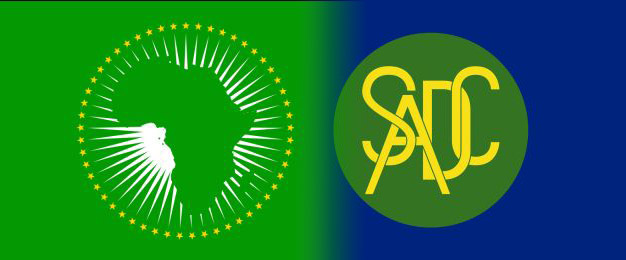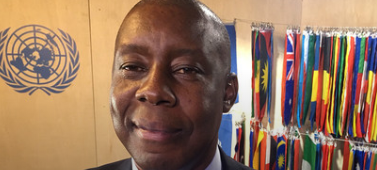Theko Tlebere.
As a proud member of influential regional and global organizations such as Southern African Development Community(SADC), African Union(AU), and United Nations(UN), Lesotho has opportunities to amplify its voice, access development resources, and influence policies that shape our world. Yet, a pressing question remains: Are we genuinely benefiting from these memberships, or are we allocating limited resources to a cycle of symbolic participation with little return on investment?
Today’s article aims to address this critical question by examining the costs and benefits of Lesotho’s engagement in these forums, focusing on the youth, who embody both the present and the future. The youth must first understand the systems that influence their nation’s path to effect meaningful change. The article is structured as follows: The Reality Check: An overview of Lesotho’s participation in SADC, AU, and UN forums, highlighting the inherent opportunities and challenges. Cost vs. Benefit Analysis: A detailed analysis of the financial and human resource commitments associated with these memberships, compared to tangible outcomes for the nation, particularly its youth. The Missing Link: An investigation into why Lesotho struggles to maximize the benefits of its participation, focusing on implementation gaps and insufficient youth representation. The Call to Action: Practical recommendations for youth to reimagine Lesotho’s engagement with international forums, advocating for accountability, inclusivity, and results-oriented approaches.
This article serves not only as an analysis but also as a rallying cry for young Basotho to recognize their power, question the status quo, and actively shape the future they wish to inherit. By the end, you will possess the insights and inspiration to take action, ensuring that Lesotho’s voice on the international stage leads to genuine, transformative change at home.
The Southern African Development Community (SADC): Cost-Benefit Analysis
SADC promotes regional integration, peace, and economic growth. However, Lesotho’s financial and human resource commitments to this organization necessitate careful evaluation. Costs: Sending delegations to SADC meetings incurs significant expenses, including travel, accommodation, and administrative costs, all of which strain the national budget. This financial burden raises critical questions about sustainability and whether the government can continue to allocate funds for international participation while addressing pressing domestic issues.
Benefits: Lesotho has experienced political stability due to SADC’s intervention in resolving internal crises, such as mediation after political unrest. Furthermore, regional trade agreements have the potential to enhance the economy by opening markets and creating new opportunities for local businesses. However, the extent to which these benefits are realized across the nation remains inconsistent.
The Reality: Despite these advantages, youth unemployment remains alarmingly high, and the country struggles to attract investments. These ongoing challenges question the effectiveness of our participation in SADC. Is the cost of involvement justified if these benefits do not reach the grassroots level? The gap between policy and practice seems to be widening, leaving many young individuals feeling excluded from the progress they were promised.
Call to Action for Youth: Advocate for cost-effectiveness by encouraging the government to prioritize initiatives that directly benefit youth, such as SADC-driven entrepreneurship programs. Young people need to engage in the dialogue and decision-making process regarding how these funds are allocated.
African Union (AU): Are We Getting Our Money’s Worth?
The AU aims to foster unity and development across Africa; however, its membership fees and operational costs are a burden for resource-constrained nations like Lesotho. Costs: Participation in AU summits, contributions to its budget, and expenses associated with aligning national policies with AU frameworks accumulate to millions annually. This reality places an additional strain on an already limited national budget and raises concerns about prioritizing social spending versus international obligations.
Benefits: Initiatives such as the African Continental Free Trade Area (AfCFTA) and climate change programs offer long-term economic and environmental advantages. However, the implementation gap often prevents Lesotho from maximizing these opportunities, leading to frustration among citizens who recognize the potential benefits but lack tangible outcomes. The Question: If youth unemployment continues, basic services remain underfunded, and infrastructure is inadequate, can the African Union’s (AU) ambitious goals be achieved in a small economy like Lesotho? The challenges faced by Lesotho reveal a significant gap between high-level continental aspirations and the everyday realities experienced by its citizens.
Call to Action for Youth: Young Basotho should demand detailed cost-benefit analyses of AU engagements and advocate for youth-centric programs with measurable outcomes. By pushing for transparency and accountability, they can ensure their voices are heard and their needs prioritized in both local and international discussions.
The United Nations (UN): Symbolic Membership or Tangible Gains?
As a member of the United Nations (UN), Lesotho engages in crucial global conversations surrounding human rights, health, and development. This participation is essential for enhancing the nation’s visibility on the international stage. However, the financial costs associated with this engagement often overshadow the immediate benefits. Costs: Maintaining a permanent mission in New York and participating in various UN bodies imposes a significant financial burden on the national budget. These costs can drain resources, diverting funds from other critical needs within Lesotho.
Benefits: While Lesotho receives UN development aid, including educational assistance from UNICEF and healthcare initiatives from WHO, it is vital to evaluate the limitations of these benefits. These programs often depend on the priorities of international donors, which may not align with Lesotho’s most urgent needs, potentially leading to inefficiencies and inequities in resource allocation.
The Dilemma: This raises a crucial question: Are the benefits of these programs sufficient to justify the high costs of sending delegations and providing administrative support? The relationship between investments made and returns received requires thorough examination.
Call to Action for Youth: There is an urgent need for youth to demand greater accountability regarding the use of UN resources. Advocating for their involvement in project planning can help ensure that initiatives are tailored to address local needs and the unique challenges faced by young people in Lesotho.
Is Lesotho Getting Value for Money?
Participation in global forums provides Lesotho with a valuable opportunity for diplomacy and development. However, the financial costs often exceed the tangible benefits gained. For instance, millions spent on delegations could be redirected toward more impactful areas such as job creation, education, and healthcare for young Basotho, ultimately uplifting our communities. Missed Opportunities: When commitments made in international forums are not fulfilled, the potential positive impact diminishes. There is a significant disconnect between the promises made and the actions taken, leaving the youth and the nation without the expected benefits from participation. What Needs to Change?: To ensure our engagement is genuinely beneficial, delegations should prioritize actionable outcomes relevant to the lives of the people, particularly the youth. A shift toward practical results can enhance the effectiveness of our international involvement.
A New Line of Thinking for the Youth
Lesotho’s participation in international forums is not inherently flawed; it requires a more strategic and thoughtful approach to be cost-effective and impactful. For meaningful participation, young Basotho must advocate for: Accountability: Detailed government reports outlining the costs and benefits of these memberships are essential for transparent evaluation. Youth Inclusion: Ensuring representation in delegations is vital so that the concerns and aspirations of the young population are recognized and addressed in these discussions. Results-Oriented Policies: Initiatives that produce tangible benefits for the youth and the nation should be developed, aligning resources with actual needs on the ground.
It is time to rethink our global engagement practices. By questioning the value of our participation in international forums and advocating for necessary reforms, the youth can transform Lesotho’s international interactions into pathways for meaningful development. Together, we can turn these discussions into engines of progress rather than platforms for expense-driven deliberations. The Future is NOW!
Summary
- Today’s article aims to address this critical question by examining the costs and benefits of Lesotho’s engagement in these forums, focusing on the youth, who embody both the present and the future.
- This article serves not only as an analysis but also as a rallying cry for young Basotho to recognize their power, question the status quo, and actively shape the future they wish to inherit.
- By the end, you will possess the insights and inspiration to take action, ensuring that Lesotho’s voice on the international stage leads to genuine, transformative change at home.

Your Trusted Source for News and Insights in Lesotho!
At Newsday Media, we are passionate about delivering accurate, timely, and engaging news and multimedia content to our diverse audience. Founded with the vision of revolutionizing the media landscape in Lesotho, we have grown into a leading hybrid media company that blends traditional journalism with innovative digital platforms.






